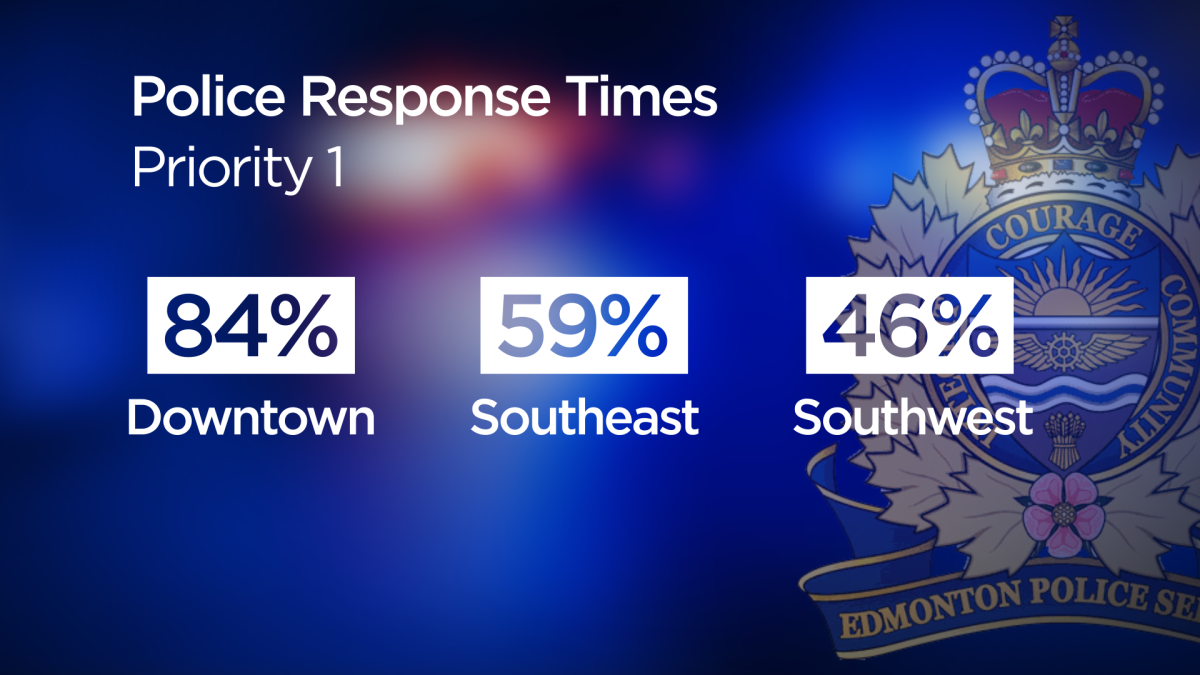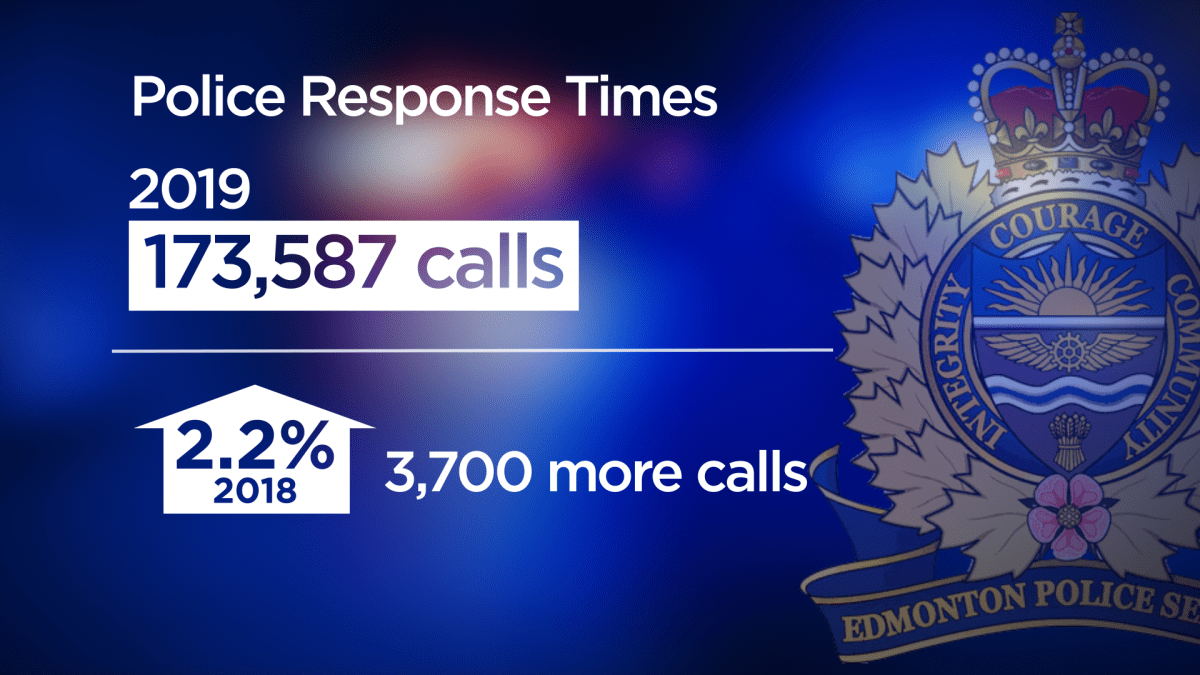The Edmonton Police Service (EPS) is struggling to meet its response time targets amid an increase in call volumes. It’s just one of many findings from a recent report presented to the city’s police commission on Thursday.

EPS said members try to get to top priority calls within seven minutes. That has been difficult, but Chief Dale McFee said it’s not because they aren’t trying.
“We’re setting them up for failure,” he said. “You’re going call, to call, to call — and the calls boards are stacked.”
Response times measure how long it takes for police to dispatch, travel and arrive on scene. Time goals range from seven minutes or less, to 180 minutes for each priority level ranked from one to five.
A Priority 1 call means there’s an active threat to human life and the target response time is seven minutes or less.
Priority 2, assigned for things like an vehicle theft in progress where an officer response will likely prevent or reduce further loss of property, has a target of 12 minutes.
Priority 3, for crimes that have just occurred and officers responding will increase the chance of finding a suspect, has a targeted response time of 17 minutes.
Priority 4 is assigned for crimes that are time-sensitive, such as when a shoplifter is in custody with security and cooperating, so the target is 40 minutes.
Priority 5 means the nature of the offence is not time-sensitive — for example, a business finds it was vandalized the night before — so the response time target is three hours or less.

Out of six Edmonton police divisions, downtown has the best record for Priority 1 calls, according to the report. Police arrive within seven minutes 84 per cent of the time.
Southeast and southwest divisions struggle the most, only hitting that target 59 and 46 per cent of the time, respectively.
“We also have to get around the fact — thinking that response times are the key to solving crime, it’s not,” McFee said.
“I also don’t want to lose sight of the fact [that] when someone in a crisis situation, we’re going to get someone there now — not an average response time.”

Get breaking National news
The report shows Priority 2 and 3 calls meet the response target about 90 per cent of the time, but McFee noted those calls are not as frequent.
He said it’s the lower priority calls that are “jamming the system.”
“Those repeat calls for service equally as much as the initial calls for service – we don’t want people to stop calling us; we just want to have a more effective manner to get them connected to something so they don’t need to call us,” he said.
In 2019, Edmonton police responded to 173,587 calls, a roughly two per cent increase from 2018. That corresponds to 3,700 more calls.
“The top calls on there — disturbances, other related social issues — those are things we’ve got to have a different response for,” he said.
McFee said EPS is taking a hard look at the report’s findings.
“You can’t improve your Priority 1 response unless you do something differently with your Priority 4s and 5s, because it’s the same people taking these calls,” he said.
Edmonton police are looking at the deployment model differently, to be more proactive, according to McFee. He said changes are coming in the near future.
“We’re here to serve the public, but at the same time, we have to balance and use our resources in the most effective and appropriate manner to keep our people safe.”











Comments
Comments closed.
Due to the sensitive and/or legal subject matter of some of the content on globalnews.ca, we reserve the ability to disable comments from time to time.
Please see our Commenting Policy for more.